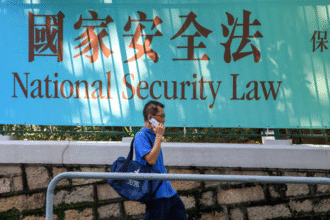Inquiry into Foreign Interference
Allegations that Iranian hackers targeted the Trump campaign have the FBI investigating them. This action comes amid mounting worries about foreign meddling in American politics. The FBI announced the inquiry in a terse statement, avoiding mentioning Iran or the previous president. The comment said, “We can confirm the FBI is investigating the matter.” This study has continuously discussed cybersecurity and foreign intervention in U.S. elections in fresh dimensions.
A Trump campaign spokeswoman said the papers were allegedly “illegally obtained by foreign sources hostile to the United States.” This claim has drawn further attention to possible foreign influence, especially involving Iran, and sparked a demand for openness and responsibility during the inquiry.
Iranian Denials and Broader Investigations
Iranian officials flatly deny any role in the hacking claims. The U.S. administration has not publicly accused Iran of planning these cyber operations yet. The FBI’s probe goes beyond the Trump campaign by itself. Additionally, the government is investigating whether Iranian hackers specifically targeted the Joe Biden-Kamala Harris campaign. This more comprehensive range captures the gravity with which U.S. officials handle these claims.
The inquiry picked Steam after a threat analysis center (MTAC) assessment from Microsoft. The paper, which came out shortly before the declaration of the Trump campaign, claimed that Iranian hackers had attacked an unidentified U.S. presidential candidate’s campaign in June. Using a spear-phishing email approach meant to fool users into clicking on dangerous links likely to steal private data, the attackers
Trump's Reaction and Phishing Attempts
Trump has minimized the hacking claims by claiming that hackers can only obtain publicly available material. Even with this rejection, the FBI started looking early in July following phishing efforts in the campaigns of Trump and Biden-Harris. Three Biden-Harris campaign staff members were reportedly targeted by phishing emails in the days preceding President Biden’s announcement of his intention to leave the race.
Declaring that they are “not aware of any security breaches of our systems,” a Biden-Harris campaign spokesman has reassured the public that their team “vigorously monitors and protects against cyberthreats.” This comment seeks to reassure the public and supporters that the campaign is acting in the required response against possible cybersecurity risks.
Political Reactions and Legislative Concerns
First launched in June, the FBI’s inquiry has attracted significant political response. Democratic Congressman Adam Schiff has been outspoken in calling on the FBI to publicize their investigative results. Declaring, “The U.S. intelligence community moved much too slowly to properly identify the hacking and dumping scheme carried out by Russia,” Schiff attacked the U.S. intelligence community for its slow reaction to Russian interference in the 2016 election and underlined that “they should act quickly here.”
Congressman Eric Swalwell has also intervened, asking the Department of Homeland Security to provide a briefing on the claimed Trump campaign breach. On social media, Swalwell voiced his worries, “Yes, Trump is the most nasty person ever to seek office.” He also searched earlier elections for foreign hackers. That does not mean, however, that America ever welcomes outside meddling.
These remarks underline the importance of quick and open reactions to such threats and reflect legislators’ more significant concern over the possibility of foreign players upsetting the democratic process.
Historical Context and Additional Security Concerns
The present research is positioned against historical disputes. Trump notoriously asked Russia to hack former Secretary of State Hillary Clinton in 2016, therefore undermining his opponent. This episode raised concerns about foreign meddling in American elections, a topic of relevance even now.
Current security concerns go beyond cyberattacks. Though this has nothing to do with a recent attempted shooting in Pennsylvania, U.S. security sources have already spoken of an Iranian plan to kill Trump. Alleged to have links to Iran, a Pakistani man was charged by the U.S. Justice Department Tuesday with planning to kill U.S. officials, maybe including the former president. This evolution emphasizes the extensive security issues involving Trump and other well-known personalities.
The continuous inquiry into the hacking claims emphasizes the weaknesses in political campaigns to foreign intervention. It also emphasizes how urgently strong cybersecurity policies are needed to defend democratic processes and guard against physical and cyberattacks. As the research advances, the requirement of alertness and openness in handling these hazards stays first.
Elon Musk’s Cash Giveaway to Voters Sparks Legal Controversy Amid 2024 Presidential Race








